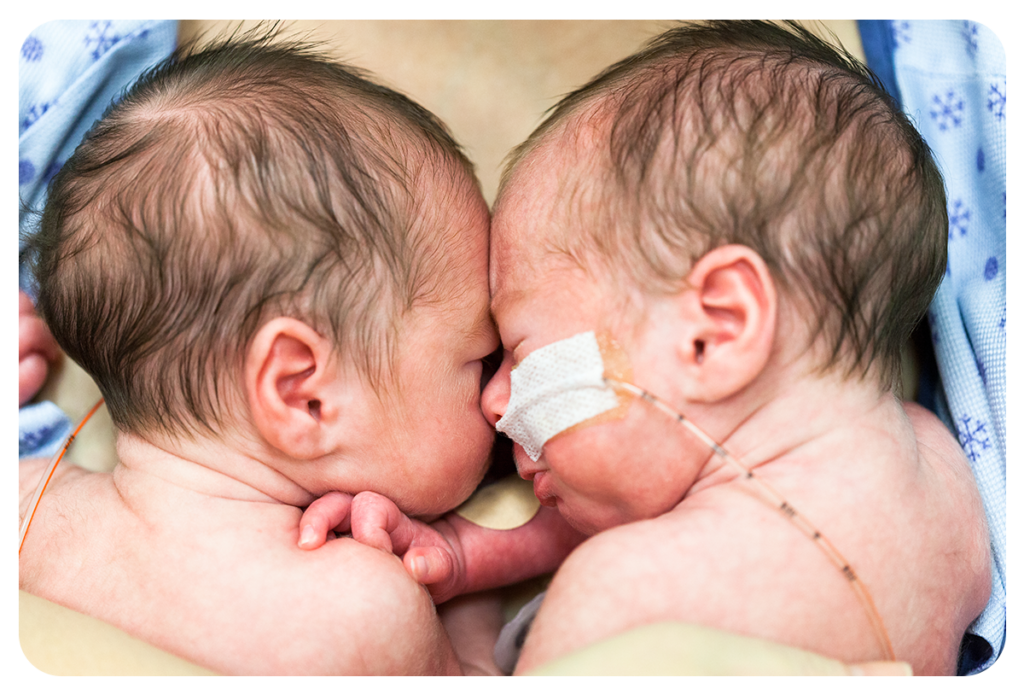Why Twins?
Twin pregnancies are roughly five times more likely to be complicated by preterm birth, preeclampsia, fetal growth restriction, and other complications, compared with single-baby pregnancies. These complications can result in a considerable risk of the mom and baby being seriously ill or even dying.
Twin infants are about five times more likely to die by their first birthday than “singleton pregnancies”, or pregnancies where the mom is carrying one baby. Twin infants also comprise a disproportionate portion of neonatal intensive care admissions and have quadruple the risk of developing cerebral palsy.
There is an urgent need to promote research in the field of twin pregnancies to increase our understanding of how and why these pregnancy complications occur in twin pregnancies, and to develop treatment and care plans to decrease the risk of complications.
The research conducted by Sunnybrook’s Twins Research Centre will have a profound impact on both the short and long-term health of twin infants and their mothers.










